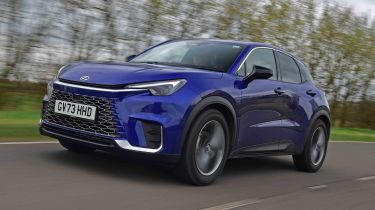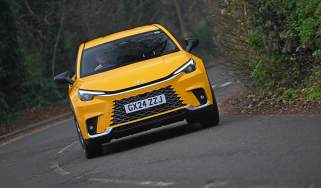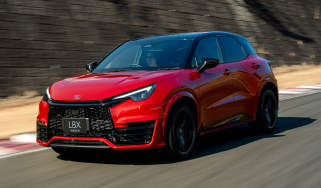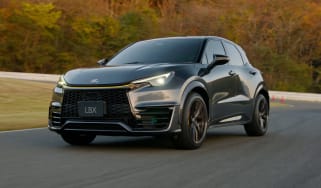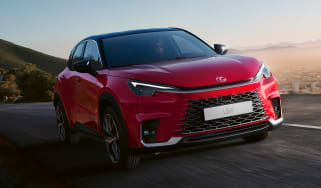Lexus LBX review
The small Lexus LBX SUV breaks new ground for the luxury car maker

Is the Lexus LBX a good car?
There is nothing quite like the Lexus LBX currently on sale in the UK. It's as small as a Toyota Yaris Cross, yet offers the kind of premium appeal that is synonymous with larger Lexus models. However, while it feels well-appointed from behind the wheel and is reasonably comfortable to drive, there are compromises elsewhere. Rear passenger space is almost as cramped as it is in a Yaris Cross, while the LBX's list prices place it on a par with electric SUVs that offer lower running costs, or larger petrol models that match it for quality, but deliver greater practicality.
| Key specs | |
| Fuel type | Petrol/electric hybrid |
| Body style | 5dr SUV |
| Powertrain | 1.5-litre, 3cyl petrol plus electric motor |
| Safety | 5-star (Euro NCAP, 2024) |
| Warranty | 3yrs/60,000 miles |
How much does the Lexus LBX cost?
After many years of offering a safe range of luxury SUVs and saloons, Lexus is going all-out to diversify its range. The Lexus LC grand touring coupe started the expansion, while the Lexus LM people carrier offers something unique in the large luxury car sector. At the smaller end of the market, Lexus is also downsizing with the LBX premium small SUV.
LBX stands for Lexus Breakthrough Crossover, and this is only the second car from the company to feature a three-letter name (the first being the Lexus LFA supercar). It's the ‘Breakthrough’ part that's important, because the LBX is the smallest car Lexus has ever built, but it comes with the premium quality and technology that has made the company's larger cars popular.
Prices range from £30,000 to around £40,500, which puts the LBX in the ballpark of small electric SUVs such as the Jeep Avenger and Volvo EX30. But while Lexus is dipping its toe into the EV market with the larger Lexus RZ, the LBX is a petrol-electric hybrid. It uses the same running gear as the Toyota Yaris and Yaris Cross, so there's a 1.5-litre three-cylinder petrol engine combined with an electric motor and battery, with the system tuned to make 134bhp here, a 5bhp increase over the most powerful version of the Yaris. As with the Yaris Cross, the LBX is available with front or four-wheel drive (on Takumi models), the latter being a rarity in the small SUV class.
There are four core trim levels: Urban, Premium, Premium Plus and Takuma, although both the latter models can be upgraded to Design spec with a two-tone paint scheme and a machine-finished alloys wheel design.
Standard specification includes a 9.8-inch touchscreen infotainment system, a 7-inch digital instrument cluster, dual-zone climate control, front and rear parking sensors, a reversing camera, five USB ports, wireless Apple CarPlay and wired Android Auto, plus a full suite of driver assistance systems.
Lexus LBX alternatives
The most obvious rivals are other premium small SUVs like the Alfa Romeo Junior, Audi Q2, BMW X2, Mercedes GLA and Volvo XC40. You could also consider the MINI Countryman and, if you’re prepared to sacrifice the premium badge and an uplift in quality, the closely related and more affordable Toyota Yaris Cross.
Frequently Asked Questions
Lexus has a superb reputation for reliability, so although the LBX hasn’t appeared in our Driver Power customer satisfaction survey, it should be a reliable car. You can also take comfort from the fact that it uses parts from the tried and tested Toyota Yaris Cross.
